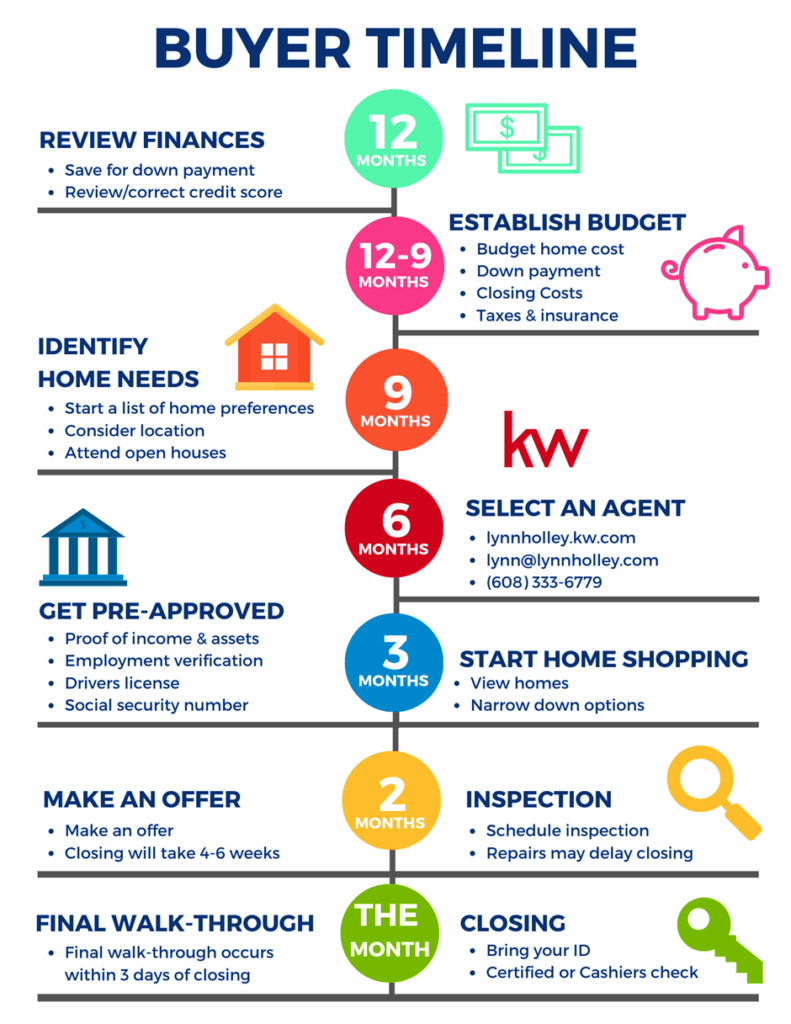
Buying a house is the most thoughtful investment. It requires one to explore options, analyse the market, and budget. Some individuals also set reminders for the price drop from the broker’s point. Asking the right questions and considering important aspects matter.
For example, according to Ellis and Co. Managing Director Rob Smith, “How long the market has been on the market and how long the sellers have lived there can be great questions.”
It is because the house that has been on sale for a long time and is not getting a potential buyer may be questionable. It may have some hidden issues that the owner is not transparent about. Thus, here you can negotiate a lower price to buy the home affordably.

What should you consider before buying a house?
The first thing to consider is the initial impression of the property. You must view the property early and spend some time outside. It will help you analyse the aspects like:
- Noise from the neighbours
- Traffic on the street
- The condition of the property’s exterior, including the roof.
What signs should you look for while checking the house?
As you walk through the property, you must check the signs, like:
- Dampness, including peeling walls or blistered paint
- Signs of subsidence, including cracks in walls or floors
- Electrical issues
- Plumbing issues
- Poor quality ventilation
- No central heating system
- Fresh decorations
If you encounter these signs, you may need to renovate the property. It is because the seller may not agree to improve all the aspects. Thus, identify the approximate costs and your budget. If you lack enough, you can use existing property that you own to get funds. It is for individuals shifting properties to upgrade their lifestyle.
You may explore the cheapest bridging loans in the UK marketplace. Identify and compare the APR, interest rates, loan costs, deposit, LTV or loan-to-value ratio. Generally, getting 80-90% of the LTV is considered a good fetch.
It is the value of your current home against the amount required. It helps you renovate the existing property without affecting small savings or other important bill payments. You must have a clear plan to repay the dues timely.
7 Things to consider before buying a home
It is all about investing more time in viewing properties and determining what you need. Divide your list into must-haves and things that you can compromise on. It will help you avoid making decisions in a hurry and regretting it later. Here is what you must consider before buying a new home:
- Understand the market value
Evaluating a property accurately according to some parameters is important. You may miss out on some, hence an expert may help you here. A property inspector or advisor may help you identify the ideal value of the property.
Some agents even offer free inspections to new or first-time home buyers. They hold the knowledge of the local market and connections to provide you with an estimated property value. It may help you budget for the mortgage or the home purchase accordingly.
- Minimum price the seller may accept
You may find it silly, but yes, property prices are negotiable too. A seller may agree to drop a few pounds if the property is on the market for a long time. In this situation, the seller may be willing to receive the first offer he receives.
Thus, you may have the upper hand in this deal. Estate agents may hint whether the seller may agree to the proposal or not. It is the responsibility of the broker or the agent; otherwise, he may lose his commission.
- Local plans which may affect property
It is the most important aspect to consider if you want to buy just the desirable house. For example, you like the view outside your window. However, the new regulations may commercialise that piece of land in the future.
In that case, the view would be gone, and it may not meet your liking standard then. Thus, ask this question to the broker or the property advisor. It will help you decide right for your needs.
- Leasehold or freehold
Identify whether the property that catches your interest is on lease or free. Generally, the property agent must keep it clear in the property listing. However, asking helps you eliminate any confusion regarding that.
Freehold is the preferred type of ownership, as you own the building and the land. However, most flats in the UK are on lease. Thus, you must find out how many years the property is on the lease for. Understand the service charges that apply to the property.
If the property is on leasehold, you eventually pay more in conveyancing fees. So, it is more than important to get a conveyancer on the board who’s affordable on your budget. You cannot skip the fee totally.

- Renovations made recently
Are there any home improvements that the owner has done recently? Does he have valid planning commission permission or consents? If not, it may lead to more expense and delay in the home ownership. You may expect to spend more on the legal aspect itself.
You must search for the home improvements that require permission from the planning commission. It will help you avoid massive fees later. You can also get the property surveyed before buying it. The solicitor will check whether all the permits are in place. You may get the reassurance before investing in the property.
Yes, it may require being financially ready to engage in legal stuff. Spending now is better than affecting mental and financial well-being later.
If not prepared financially, check instalment loans for bad credit from direct lenders online. It may help you fund the costs of legal procedures, documentation, and the required permits. You can even pay the solicitor and conveyancer out of that. Yes, you may get one despite a poor credit history and mismanaged finances.
- Aspects included in the sale
It is one of the most critical aspects to know before you pay the full sum. Check what things you are paying for. Do the costs cover the fittings, garden shed and other fixtures? Or you need to spend separately on bathroom and kitchen repairs. Generally, estate agents must provide you with the details of the things that could make a difference to your purchase.
A good conveyancing solicitor can ensure your purchase includes everything agreed in writing and verbally. You must compare quotes from quality assured local conveyancing solicitors now.
- Determine the council tax and other costs
A council tax is a legal fee that you pay for residing and using the services in an area. The property must be listed in the council tax band in the specific area.
It may vary according to the locality and the area one lives in. Also, check the utility costs of living in an area. You can compare these prices across other regions in the country. It will help you know the most affordable areas to live in, and this will further help with the right home search.
Bottom line
While it is important to ask these questions, don’t assume that the agent will always be right. Instead, do your research and get habituated to asking relevant questions. Moreover, getting a house surveyed may help you a lot in knowing a property. Whatever the concerns are, make sure that your conveyancer addresses them clearly. You can also check the TA6 form to know more about the property fittings and contents.

Jessica Rodz is the Senior Content Writer at Cashfacts. She has a long career in the field of content writing and editing. Jessica has the expertise in the UK lending marketplace where she has worked with 7 different lending organisations and acquired many responsibilities from preparing loan deals and writing blogs for their websites.
At Cashfacts, Jessica is managing a team of experienced loan experts and doing a major contribution in guiding the loan seekers via well-researched blogs. She has done graduation in Business (Finance) and now currently doing research papers on the UK financial sector.




